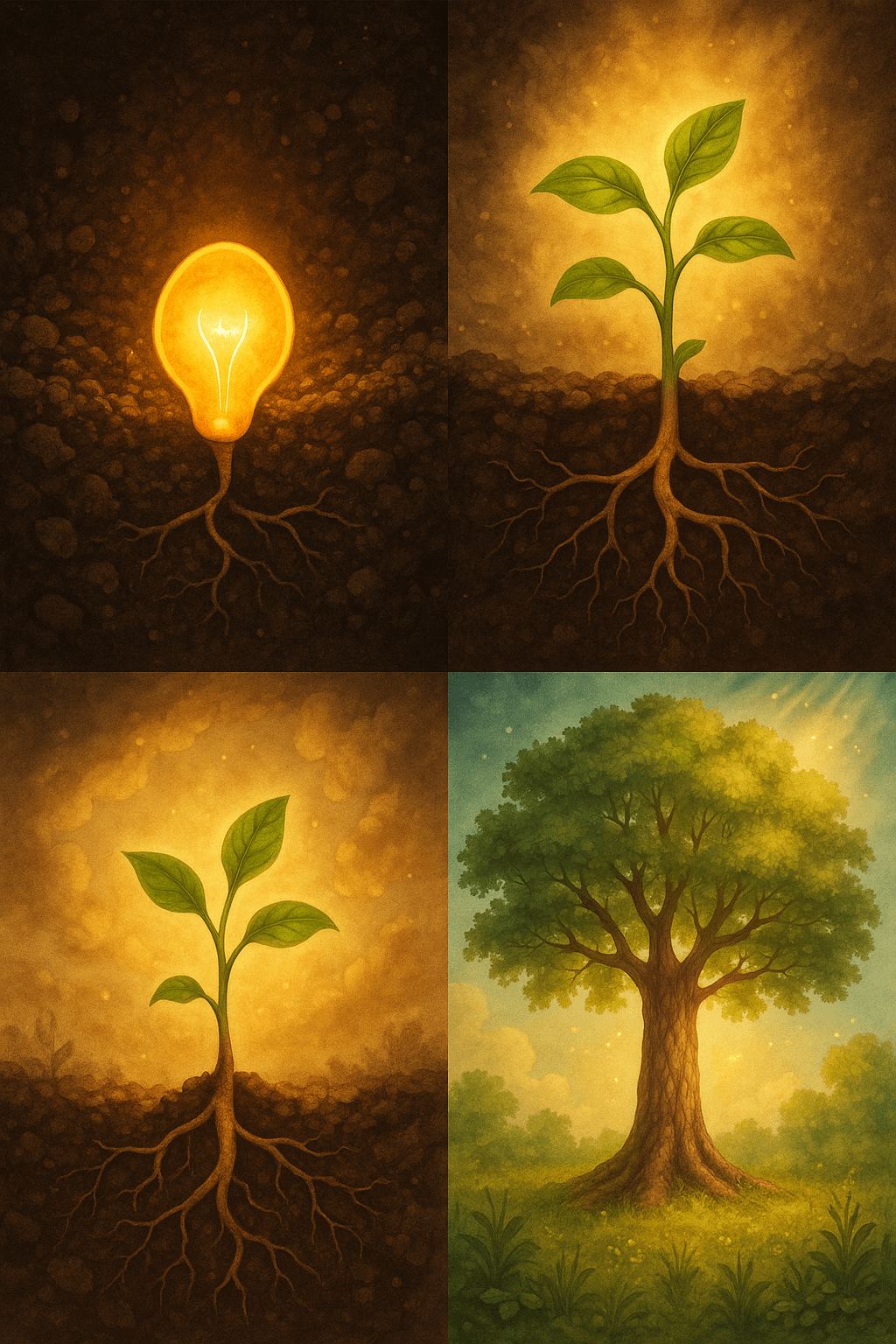The Transformative Power of Action Over Pure Thought

An idea that is developed and put into action is more important than an idea that exists only as an idea. — Buddha
—What lingers after this line?
One-minute reflection
What feeling does this quote bring up for you?
Distinguishing Thought from Action
Buddha’s insight encapsulates a critical distinction between mere conception and execution. While ideas form the seeds of innovation and progress, their true value emerges only when they manifest in tangible actions. This principle challenges us to move beyond contemplation and into the realm of purposeful activity, emphasizing that the act of realization carries far more significance than passive ideation.
From Philosophical Reflection to Practical Change
As we consider historical examples, the transition from thought to action has often marked pivotal moments in human development. In Plato’s *Republic*, the contrast between the philosopher’s perfect city and the world outside the cave exemplifies this dilemma—great ideas risk withering in isolation unless brought forth into the social fabric. Thus, turning thought into deed is what propels societies forward.
The Teachings of Buddha on Right Action
Drawing directly from Buddha’s teachings, the Noble Eightfold Path emphasizes ‘Right Action’ as essential for spiritual progress. Instead of merely understanding moral precepts, practitioners are urged to embody them. This alignment of intention and behavior bridges the chasm between wisdom and virtue, ensuring that enlightenment influences daily life rather than remaining an abstract ideal.
Innovation and Progress in the Modern World
Furthermore, the modern era abounds with examples where execution outweighs inspiration. Innovators like Thomas Edison famously remarked, ‘Genius is 1% inspiration and 99% perspiration,’ echoing Buddha’s assertion. Breakthroughs in technology and science were possible not solely because of inventive ideas, but because those notions were relentlessly pursued and actualized in the real world.
The Enduring Value of Deeds
Ultimately, the enduring worth of an idea is measured by its impact. Acts, whether small or revolutionary, demonstrate commitment and courage—qualities that distinguish dreamers from doers. As we integrate Buddha’s wisdom into contemporary life, we are reminded that the world changes not through imagination alone, but through the courageous application of inspired thought.